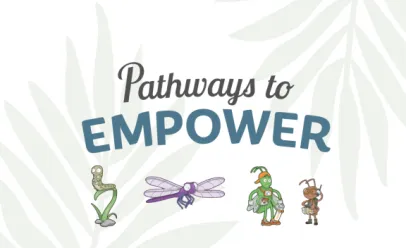Building a Stronger Future for Today's Students
April 22, 2025

In today’s ever-changing, fast-paced world, students face numerous pressures that can take a toll on their mental well-being and overall health. While academic success is a priority, schools must also equip students with the knowledge and skills to navigate their emotions, cope with challenges, and support their peers. That’s where Pathways to Empower, a brain-based mental health literacy curriculum, comes into play.
At the core of this curriculum, students are proactively supported to build healthy and resilient brain pathways. Through a combination of brain science and the Resilient Mindset Model, students’ responses to challenges are guided through the four S framework: self, situation, support, and strategies. “The Pathways to Empower programming makes the brain science of building resilience, developing healthy relationships, and fostering mental health easy to understand and apply. As an educator and mom, I realized that neuroscience could benefit people tremendously, but the information was dry and complex. I decided that neuroscience needed a translator to take that information and make it accessible and fun.” says Pathways to Empower Founder and Education Director, Donna Volpitta.
In the middle school and high school programs, each module guides students to gain a better understanding of their personal development and why they do what they do. Through their own growth students develop resilience to deal with new challenges and empathy towards their peers as they can now understand them better. Author of Pathways to Empower, Jason Schofield, says, “We're very excited to fully release the elementary series. With generous, thoughtful feedback from educators around the country who have been working with the lessons and activities, we have been able to make meaningful improvements that we can't wait to share. Hearing about how our lessons have been translated to reinforce mindful decision-making in the classroom and provide language to help students discuss the challenges they face has been tremendously rewarding.”
With this unique curriculum, schools can begin to bridge the gap between awareness and action by teaching students how to recognize signs of stress, anxiety, and other mental health concerns. Empowered by inclusive instructional strategies, each student feels seen, heard, and supported. Vice President of the K-12 Division Charley Chook shares that, “Pathways to Empower is an extremely important program for students in today’s classrooms. We have had some great piloting success already in the New England area and look forward to helping students overcome any type of mental health challenge they may endure.”
It’s time to shift the conversation and make mental health literacy a core component in today’s schools, and together, let’s make a meaningful impact for generations to come.
